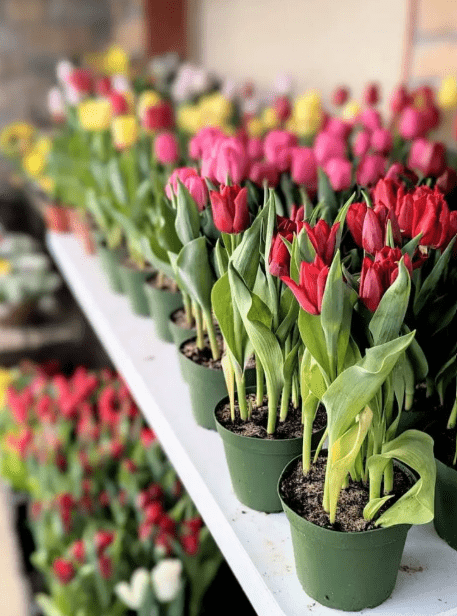If you’re someone who enjoys fresh produce, local honey, baked goods, and the warm feeling of supporting small businesses, you’ve probably shopped at either a farm stand or a farmers market. While the terms are sometimes used interchangeably, there are key differences between the two—especially when it comes to experience, convenience, and community connection.

At Dutch Country Farm Market in Spring City, PA, we proudly operate as a local farm stand, and we believe in the value of keeping things fresh, simple, and personal. Let’s break down the distinctions between farm stands and farmers markets so you can better understand where your food comes from—and why where you shop matters.
🏡 What Is a Farm Stand?
A farm stand is a direct extension of a single farm or local grower. It’s often located right on or near the farm property itself, though many can also be found in small towns or along country roads. At a farm stand, you’re buying produce and other goods directly from the people who grow or make them.
Dutch Country Farm Market is a perfect example: our stand features a wide array of farm-fresh products—from seasonal fruits and vegetables to jams, baked goods, and handcrafted items—all sourced from our farm or trusted local producers. Our customers know they’re getting freshness, transparency, and genuine hometown service.
🛍️ What Is a Farmers Market?
A farmers market, by contrast, is typically a larger event held in a centralized public space where multiple vendors come together to sell their goods. You might find dozens of booths offering a variety of products—from vegetables and meats to jewelry, flowers, and even coffee or hot food. These events are often weekly and seasonal.
While farmers markets offer variety, they usually require customers to shop on specific days and times. In contrast, farm stands like ours often have extended or regular hours throughout the week, making fresh, local food more accessible and convenient.
🔄 Key Differences at a Glance
| Feature | Farm Stand | Farmers Market |
|---|---|---|
| Vendors | Usually one or a few (often from the same farm or family) | Many different vendors from different farms or businesses |
| Location | Typically on or near the farm itself | Held in public areas like parks or town squares |
| Schedule | Open daily or several times per week | Often open once a week, seasonally |
| Product Consistency | Offers familiar, farm-grown products consistently | Product variety changes depending on which vendors show up |
| Personal Connection | Direct relationship with the grower or farm family | Opportunity to meet many local producers, but less consistency |
| Atmosphere | Quiet, relaxed, convenient | Energetic, event-like, can be crowded |
🤝 Why Choose a Farm Stand?
Shopping at a farm stand like Dutch Country Farm Market is about more than just food—it’s about connection. You’re not only getting produce that was likely picked the same day, but you’re also supporting local agriculture in a deeply personal way. You get to know the people behind the food. You learn what’s in season, get tips for preparation, and sometimes even hear stories about the land where your tomatoes, apples, or cucumbers grew.
Plus, with fewer layers between grower and customer, pricing is often better and quality control is higher. No mass transportation, no warehouses, no mystery about where it came from—just real food, from real people, in your community.
🥕 Final Thoughts
Both farm stands and farmers markets play vital roles in supporting local food systems and fostering community connections. But if you’re looking for consistency, freshness, and a direct relationship with the growers, a farm stand may be your perfect match.
If you’re near Spring City, PA, stop by Dutch Country Farm Market. Whether you’re picking up a basket of just-picked produce, a dozen fresh eggs, or a homemade pie, you’ll enjoy a shopping experience rooted in tradition, quality, and care.
As celebrations become more personal and budget-friendly, many families are exploring creative ways to make their children’s birthdays special. For inspiration and insights, check out how Parents Are Turning to DIY Birthdays and Loving the Results to see the joy and satisfaction these homemade celebrations can bring.
